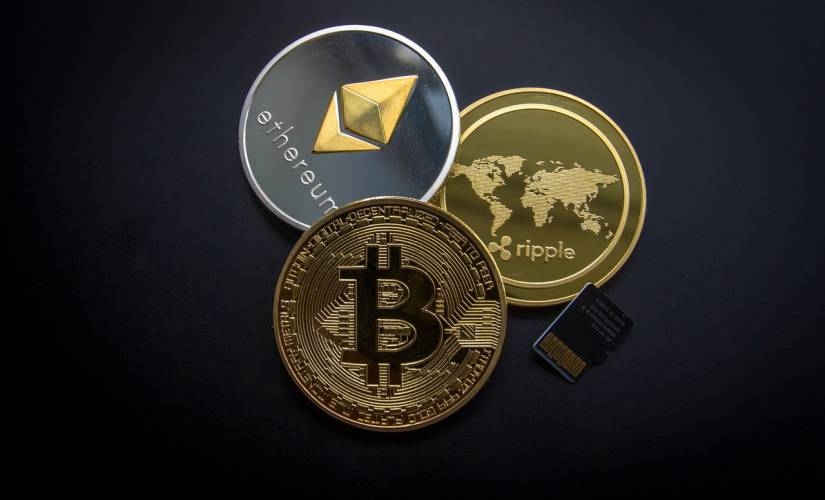How Blockchain Will Revolutionize Payments of the Future
How Blockchain Will Revolutionize Payments of the Future

The phase from which the world is passing through right now is a bit odd. There’s a lot of uncertainty in the market as the technological revolution paves the way for businesses to communicate, operate, conduct business, and experience modernized processes like never before.
The Invisible Bubble of Fear
The pandemic has seemingly confined all of us in an invisible bubble of fear. The fear, quite honestly, is directly related to the harsh reality of most businesses, which is that even today, we’ve got businesses that don’t have a website.
Multiple Technologies
Fast forward to today, the new norm has only accelerated the developmental work on multiple technologies leading to a far more facilitating future for businesses, and one specific technology is Blockchain.
Almost the entire world is talking about Blockchain and its innumerable integrations and usages. In addition, after the NFTs went viral, the discussion about cryptocurrencies and Blockchain has ramped up significantly.
Still, there is a lot of confusion when it comes to Blockchain. Some mix the technology with Bitcoin, some don’t even understand what it is, some deem it as another standard software technology, and some consider it a hoax.
Despite all these false claims or assumptions, Blockchain technologies continue to disrupt the business landscape by introducing new possibilities in the world of finance and transactions.
Oxford defines Blockchain technology as a digital ledger through which transactions can be made in the bitcoin or any other cryptocurrency, i.e., Fintech, Dogecoin, etc.
The transactions made through Blockchain technology are recorded chronologically and publicly.
The transparency factor of Blockchain technology has vastly increased its demand in the market.
It has become one of the main reasons organizations and individuals consider this mode of financial transaction as the future of digital currency.
Moving on, Research and studies have already begun to take place, and the objective is to assess the long-term prospects of Blockchain. So, with the ‘all you should know about Blockchain out of the way, let’s jump right to the sub-technology that is considered a subsidiary of Blockchain.
Blockchain & Fintech: The Technology Transportation
Fintech is another hot topic these days, raising many eyebrows and attracting many potential investors. Over the past couple of years, fintech has raised the most funding in multiple funding rounds around the globe.
This provides us with the direction of the world and where the most competition will be in the future.
Financial technology will undoubtedly be one of the most competitive domains where consumers will get multiple options to choose from.
Venture funding hit a record $ 621 billion in 2021. This figure equals more than double the preceding year. The most money was in the financial technology domain or somewhere similar out of all the capital raised.
Industries That Should Consider Blockchain The New Imperative
Blockchain has applications in many industries. As more sectors identify their changing needs, Blockchain is becoming a more common phenomenon.
One such example is the use of Blockchain in the banking and financial sector. In 2018, the market size was estimated to be around 0.28 billion U.S. dollars. In 2026, this number is expected to exceed 22 billion U.S. dollars.
Blockchain has many industrial applications, including healthcare, government operations, transportation, and logistics, but the financial services sector has the most share. The avenues offered b Blockchain for future business are bright.
Blockchain, coupled with cryptocurrencies including Bitcoin, Ethereum, or others, could transform the way we transact money.
Digital ledger technology will revolutionize how we transfer money from one place to another and perform all the relevant information.
How Blockchain Is Revolutionizing the Future of Digital Payments
Blockchain surely has a fair share when it comes to transforming and revolutionizing the future of digital payments. Let’s quickly walk through some avenues with the most impact.
1. Secure Payments
Digital security has always been an issue for organizations and the consumer. However, numerous frauds and hacks have made stakeholders realize the importance of easy payments and security.
Transparency in the digital realm, especially with payments, is imperative. Rapid transactions are the need of the hour.
Blockchain, in this regard, proposes the solution for such underlying issues.
Blockchain is composed of unlimited immutable blocks built using safe and secure procedures that restrict unauthorized change without alerting or altering the entire chain.
The technology can be used to create processes that depict transparency and boost the overall efficiency of financial transactions.
Blockchain technology can truly revolutionize our existing financial ecosystem by hitting various leakage points. Moreover, the technology works on a no-middleman method that excludes the need for a primary regulator.
Blockchain offers individuals, organizations, and institutions complete freedom of handling their wealth in whatever way they deem necessary.
2. Bank Avoidance
Today, most of the wealth is kept by banks. All routine transactions and operations are regulated. Institutions and governments regulate and manage money and often impose unnecessary and unwanted restrictions. In hindsight, this turns out to be discouraging for many.
The induction of Blockchain has enabled most individuals to complete their total wealth without any interference from the bank or any regulator. Moreover, the owners of Bitcoin, Ethereum, and other cryptocurrencies can seamlessly carry out transactions through digital wallets.
Many businesses around the globe have understood the significance. For example, you can buy cars and multiple other stuff online using your crypto wallets from anywhere in the world.
Bank accounts have a history of getting hacked. On the contrary, these digital wallets are protected by private keys allowing transactions only through verified means.
The digital wallet holders have exceeded 80 million users worldwide. These wallets make the buying and selling of cryptocurrencies possible such as Bitcoin, Ethereum, XRP, Tether, and more.
3. Superior Traceability
Blockchain has surfaced as the most secure and traceable technology in recent times, allowing businesses, institutions, and individuals to achieve efficiency levels previously unheard of.
The privacy of the buyers and all their personal information could be safeguarded better, enabling superior traceability.
Managing the KYC information will be beneficial in multiple regards. First, all financial organizations and institutions will provide better services based on the provided information.
It will also improve the overall user experience and allow the decision-making stakeholders to build more value-adding and sustainable systems. In return, the efficiency levels will boost automatically.
Records in a Blockchain-based system can be traced and tracked conveniently. Altering the data or information is impossible unless the whole chain is tempered.
Industries with an emphasis on traceability can use this technology to reform their operations and see a drastic increase in overall efficiency. The banking sector, payment systems, and other similar avenues can make the most.
4. Decentralized Transactions
Decentralization has to be the most talked-about functionality of Blockchain. This decentralization functionality has a number of advantages for end-users or beneficiaries.
Any decentralized currency can easily use the framework to perform groundbreaking transactions. Moreover, since it costs much lesser than conventional payment transfer, the technology will become the go-to for any transactions.
Whether you are transferring locally or internationally, the decentralization function eases the hassles by swiftly processing the payment. The fee for transferring any amount via banks or other payments services varies depending upon the size.
However, the cost will be significantly reduced – up to 70% in many cases. As a result, financial technology services coupled with Blockchain have a bright future ahead. This allows for more unique and novel economic models fitting the evolving needs of the future.
Over To You
Blockchain is the latest talk of the town. Be it Wall Street or Silicon Valley – Blockchain is discussed and observed alike. The significance of this revolutionary technology knows no bounds.
Financial technology has seen a rapid transformation, especially in the last decade. The shift of focus worldwide is fueled by global money games that shake the international corridors. As a result, better financial modeling and management is undoubtedly the need of the hour.
Blockchain is the technology that, if implemented correctly, can bring results that the world direly needs for improvement. As a result, V.C.s worldwide have been aggressively investing in fintech and Blockchain – for one sole reason: the safer and more efficient future of payments.
The decentralization and security functions of Blockchain are set to reform and revolutionize the world of digital payments. The need, however, is to responsibly use the technology for building a sustainable future for our generations to come.
Image Credit: Worldspectrum; Pexels; Thank you
The post How Blockchain Will Revolutionize Payments of the Future appeared first on ReadWrite.
(40)


